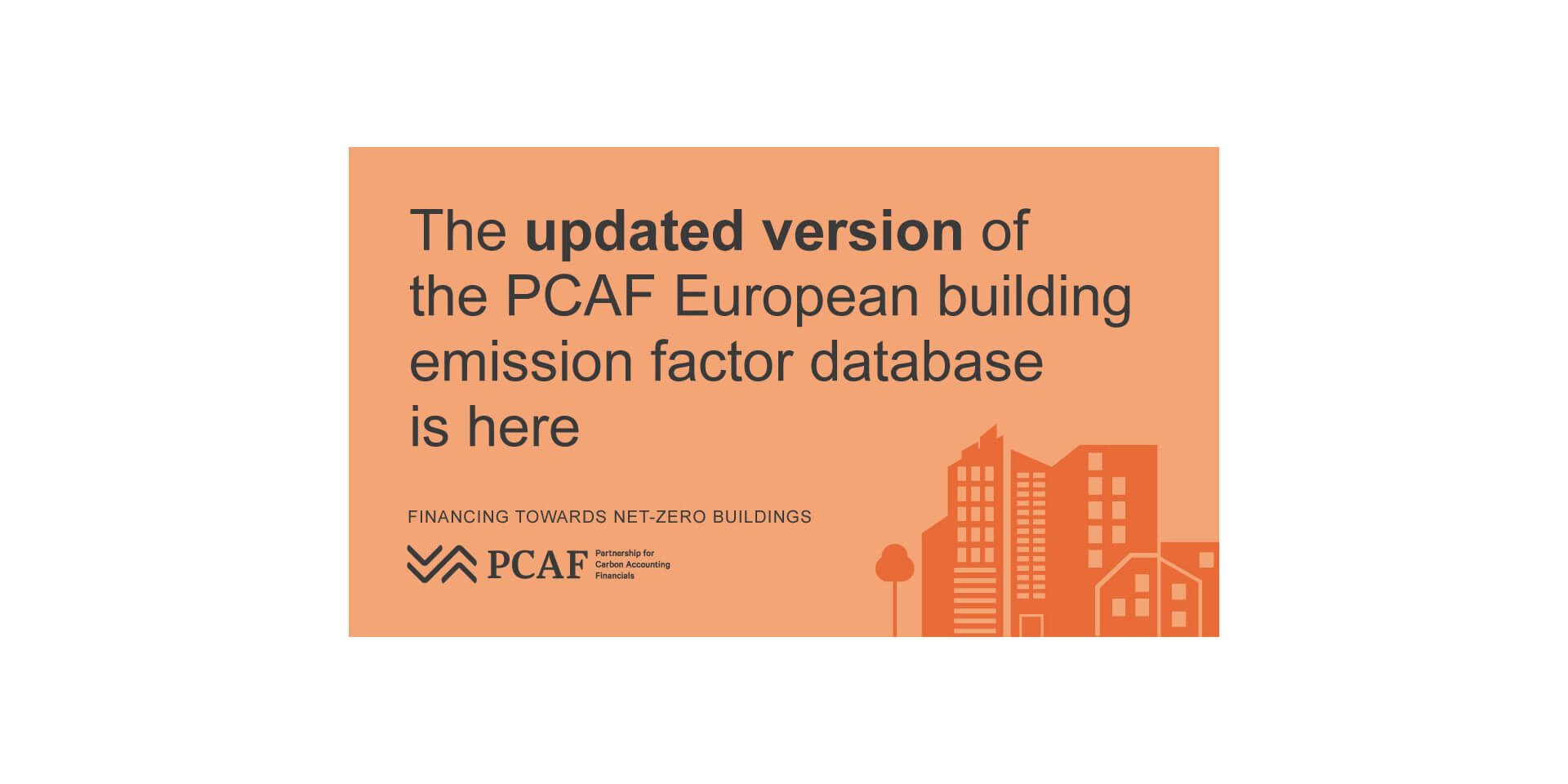
Utrecht, 16 August 2023: The financial sector has a fundamental role to play in driving forward the decarbonization of European building stock by 2050. In order to effectively track progress, financial institutions must have the ability to estimate the GHG emissions of their building portfolios.
Today’s launch of the updated version of the PCAF European building emission factor database provides further tools to the European financial sector in their journey towards net-zero building portfolios.
The first version of the database was launched in February 2022 and provided a specific set of emission factors for Commercial Real Estate and Mortgages for all countries in the EU, as well as Norway, Switzerland, and the UK. Depending on data availability, the database enabled financial institutions to distinguish between European countries, residential and non-residential building types, and energy performance certificate (EPC) ratings to interpret specific emission or energy intensity per unit.
“Buildings consume a significant share of national energy budgets and are responsible for related emissions. Financial institutions monitor the energy efficiency and financed emissions in mortgage and commercial real estate portfolios. The database, by updating EPC emissions and energy intensities data, supports financial institutions in creating transparent emission baselines and targeted actions already today.”
Martin Zistler, Lead ESG analyst, Nordea Bank Plc
The new version of the database includes several new components that PCAF has developed over the last six months.
These database enhancements include:
“The continual refinement and enhancement of calculating financed emissions plays a vital role in informing the net zero journey and strategic planning of countless businesses. With PCAF developing and enriching its database, firms can take greater confidence that their estimates are based on the latest reliable emissions factors. It is critical that the embodied emissions of construction are not neglected when considering decarbonisation of the built environment, making this guidance an invaluable resource for any financial institution exposed to these sectors in recognising the true carbon impact of their activities.”
Matthew Bullivant, Director ESG Strategy, OakNorth Bank
In order to decarbonize European building stock, the vast majority of buildings in the EU must become highly energy efficient, which remains a major challenge across the continent. The PCAF project, Financing towards net-zero buildings, funded by the Laudes Foundation, was launched with the aim of providing clear guidance to financial institutions in the region to accelerate the European building stock transition through leveraging both public and private finance and this update marks the latest iteration of these efforts.
The European building emission factor database is a key tool for financial institutions on the journey towards net zero, enabling financial institutions to meet disclosure requirements and set ambitious but achievable targets. PCAF will continue to develop new means to support these processes and mobilize financial institutions across Europe to take effective action.
If you are interested in learning more about the updates to the European building emission factor database and its application, PCAF is hosting a webinar on 19 September at 15:00 CET to describe the changes in detail.
Any feedback on the database is greatly appreciated and can be shared via info@carbonaccountingfinancials.com